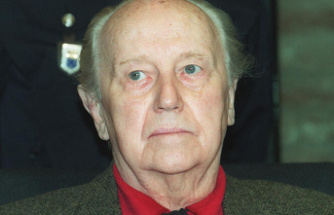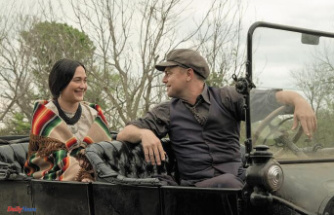Hunt or be hunted: A tool for finding family members allows you to clarify unsolved crimes
The family tree of all Humanity
Steal data from 92 million users of the web genealogical MyHeritage
In the mid 70's a serial killer remained terrified to the population of California (USA). The authorities were not able to catch him and the fear to encounter with him lasted for several decades. The criminal slipped through the night in the homes of women who lived alone, raped and killed. 50 of them managed to survive their violent attacks. 13 perished in their hands. Also committed theft or assault to couples, so your profile despistaba to the police that he came to believe that it was the action of different people. Nicknamed him the Golden State Killer (the killer of the golden state), in reference to the nickname given to California, where he was performing.
on The 28th of April 2018, the Sacramento police arrested Joseph James DeAngelo for these crimes. After 44 years of research and with an offer of $ 50,000 reward on the table (about 43.000 euros), it was not the money that gave a result, but the work of a team of scientists who found the DNA of at least one family member of DeAngelo in a public database, a sort of Facebook genetic that is used to understand our relationships of kinship, whether for the world have ancestors, and concerning which we do not know or for the search of missing persons. Its sequence coincided in part with some of the samples collected in the different scenarios where he raped her and killed their victims. An in-depth analysis, crossing all the data of a line of police investigation, which has not transpired, was the identity of one of the most dangerous criminals and sought after the united States.
however, in the same way that this genetic database, made available on the internet available to the public, it has been used with a good purpose and with respect for the law, two teams of scientists, from Israel and the united States, warn of the danger of sharing our DNA in them. Today there are companies in the market that for a small fee we provide a genetic sequence staff that we can upload to these web pages and compare it with the data stored. Have a relative, known or not, which has also shared its analysis on this site, we could find it through the tool. This is a personal choice that carries a risk of privacy that is in our hand to take. But, what Only we decide whether our DNA is public? Doesn't seem to be.
The risks to the privacyThe researcher Yaniv Erlich, chief scientific officer of the company genetic analysis and database, MyHeritage, has published Thursday in the journal Science a method that allows to identify, through your DNA to people who have not even shared on these websites your data. Just been made members of his family, that raise the alarm about the possibility of an illicit use of the information as sensitive. According to Erlich and his colleagues, up to 60% of the u.s. population with european ancestry, including those that have not provided a genetic sample, can be identified thanks to this method.
The query, in addition, can be done by anyone: cops, governments, medical insurers and, in short, any company, entity or individual. "Ignoring the legal issues, the police or the government could track people in situations that most people would consider private," he commented to THE WORLD Shai Carmi, a researcher at the School Braun of Public Health and Community Medicine (Hebrew University of Jerusalem, Israel) and co-author of the study. By putting another example, "businesses could identify patients who have participated in studies of diseases," he added.
opens the debate on the privacy of genetic data and the need for a regulation. "This is a commitment that must be discussed in the scientific community and the public," he said.
This situation is compounded if one takes into account the attack suffered in June of 2018 for the web of genealogical data that directs Erlich. MyHeritage was hacked and email addresses of 92 million users were stolen. "Although the e-mail addresses were exposed, all passwords remain secure and there was no leak of genealogical data confidential," he assured his partner Shai Carmi.
In a parallel investigation published in the journal Cell, Noah Rosenberg of the University of Stanford (USA) and their collaborators, have uncovered a method to traverse the information stored in large genetic database that manages the police (the famous system CoDIS FBI) with the of this type of public web pages of genealogical character. Their study has focused on the resolution of cases police complex and unresolved but also highlights the misuse that might be made, with the right tools, the genetic data of any person. "Our study provides information about the confidentiality risks associated with the genetic information. As they grow the genomic databases are open and are being exploited for the application of the law, the potential of the comparison family between two gene databases different discover new privacy risks", he explained to this half-Jaehee Kim, the main author of this second study and researcher at the Department of Biology of the University of Stanford (USA).
In any case, and despite the illegal uses can be made of the genetic data available on the internet, it should be noted that the original purpose of these web pages is useful. "The DNA databases are crucial for the research and biomedical technology," said Carmi. In the context of the identification of people, enable the identification of families given in adoption or to victims of kidnappings. Can also reveal if an individual has a different family to the one you think or to help people to know their ancestors and their ethnic origins.
Date Of Update: 26 October 2018, 19:29











